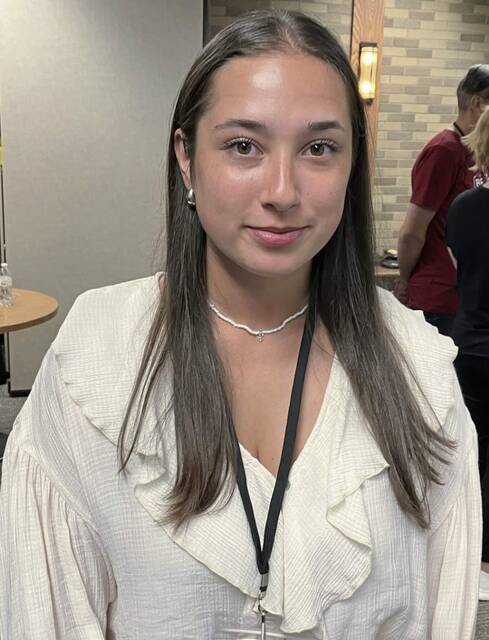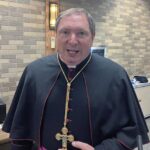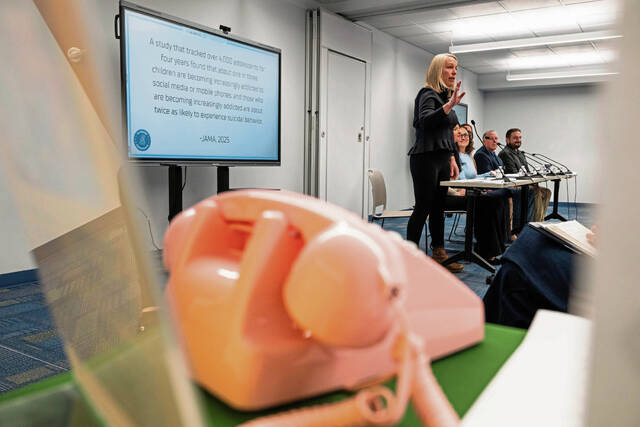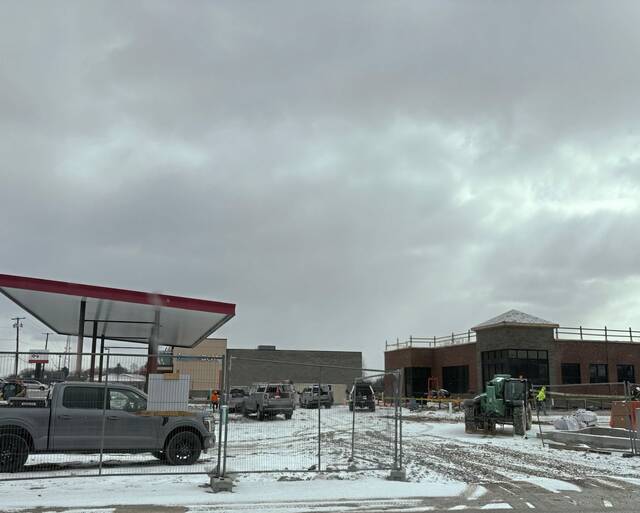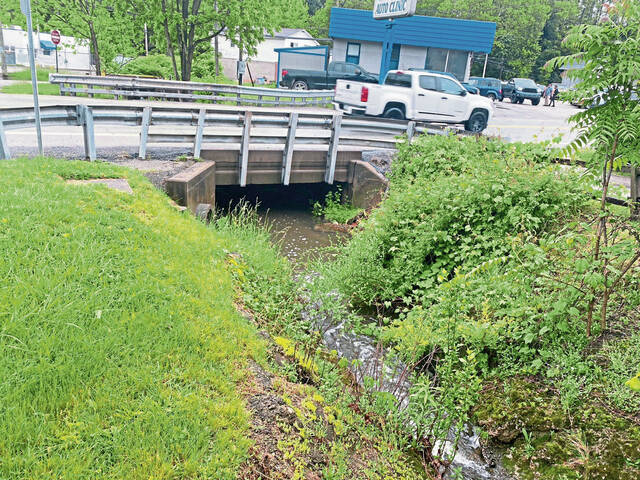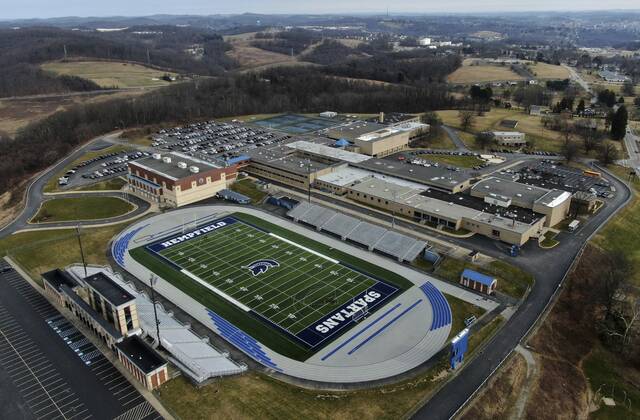A group of Ukrainian families who toured the Greensburg area this week to possibly resettle and work here were generally pleased by what they experienced, said a Ukrainian priest who served as their translator.
“They were excited to be here. They need a couple of days to decide about a job,” and to live here, said the Rev. Oleh Seremchuk, a Ukrainian native and priest at St. John the Baptist Byzantine Catholic Church in Scottdale.
The eight Ukrainian families came primarily from the Philadelphia area to see the area and talk to employers on Monday as part of the Catholic Diocese of Greensburg’s initiative to get Ukrainian refugees to live and work in the county. The diocese is developing a program that will couple support from social services through the diocese’s Catholic Charities with businesses seeking to fill job openings.
To get a view of what life would be like in Westmoreland County, job interviews were arranged and the group toured schools, hospitals, businesses and attractions such as Twin Lakes Park near Greensburg on Monday. Two more Ukrainians arrived Thursday, with more planned for later in August, the diocese said.
There is no specific timeframe for when Ukrainian families might resettle in the county.
“It will take several weeks to collect and translate their resumes, schedule more job interviews, find them housing and child care and assist them with learning English,” said Melaney Hegyes, managing director of the diocese’s Catholic Charities, which is helping to spearhead the initiative.
While there are challenges for the Ukrainians to learn to live in the United States, “they (Ukrainians) are resilient. They are the ones who can adapt quickly,” Hegyes said.
“For Catholic Charities and the parishes, this is a tremendous opportunity to help the greater community. We’re creating an environment where everyone is welcoming and a cultural environment that is welcoming and somewhat familiar,” to the Ukrainian immigrants, Bishop Larry Kulick told more than 35 business and government leaders who gathered Monday at Christ Our Shepherd Center in Unity to discuss the program.
To make the program work from the perspective of Catholic Charities, Kulick said it is important to hire a full-time bilingual counselor to work with the Ukrainians.
Kulick emphasized that the Ukrainians who relocate here would find that a Ukrainian community already exists in Western Pennsylvania. There are about 40,000 people who have ancestral ties to Ukraine, the fourth-largest Ukrainian enclave in the United States, Kuilik said.
“It is the people that they connect with. That is the main thing. Here, everyone has been so open,” said Umrysh, whose brief experience in Sweden after leaving home was not as welcoming.
Following the rules
The diocese’s program is designed to help legal immigrants in conjunction with the requirements of Uniting with Ukraine, the U.S. initiative that permits them to live and work in the country for two years, Kulick said. Employment-based immigration is an ideal path to obtaining a Green Card, which the U.S. Citizenship and Immigration Services said is a way to live and work permanently in the country.
There are more than 245,000 applicants seeking acceptance into the Uniting for Ukraine program and many are connected with the Ukrainian Catholic Archeparchy of Philadelphia
In setting a program that has been under consideration since the Russian invasion of Ukraine in 2022, the bishop said the diocese has worked closely with Archabbot Borys Gudziak, leader of the Ukrainian Catholic Archeparchy of Philadelphia.
“First and foremost, the key is that once they secure a job, they have a place to live and are able to commute to and from work,” said Marta N. Rubel, the archeparchy’s social outreach director, in an email statement.
The immigrants need to maintain the support of their sponsor “in helping them continue to acclimate to life in the United States,” Rubel said.
Kulick acknowledged that one of the challenges in working with the Ukrainians is to convince them the diocese’s efforts are honorable, the program is legitimate and there is no bribery involved in return for the diocese’s assistance — “no quid pro quo.”
The Economic Growth Connection of Westmoreland was interested in joining the effort, in large part because it is an opportunity to help alleviate the workforce shortage and create more jobs, said Jim Smith, president of Economic Growth Connection, a Greensburg-based economic development organization assisting in the program.
“Maybe this is a way we can help each other,” Smith said.
Ten businesses that completed a questionnaire about workforce needs in regard to assisting the diocese had a total of 200 openings, Smith said.
“We just saw it as a mission for the manufacturing side,” offering the immigrants good-paying jobs with benefits, said Randy Roadman, government relations director for General Carbide of Hempfield, which had set up interviews with some of the immigrants.
Another challenge will be to find suitable housing for the Ukrainian immigrants in a location where they can be relatively close to each other for support, Smith said.
Smith said he has spoken with developers who have housing in the Greensburg area that could be available to the refugees.
Ten school-age children were among those Ukrainian immigrants who came to the Greensburg area. They will need to make connections with schools, whether it be parochial — such as Aquinas Academy and Greensburg Central Catholic — or public like Greensburg Salem and Hempfield Area, or a college, said Jennifer Miele, a diocesan spokeswoman.
“My own personal commitment is to this project,” Kulick said. It is a mission of Catholic Charities and the church, “to improve the lives of those who are vulnerable and in need.”


